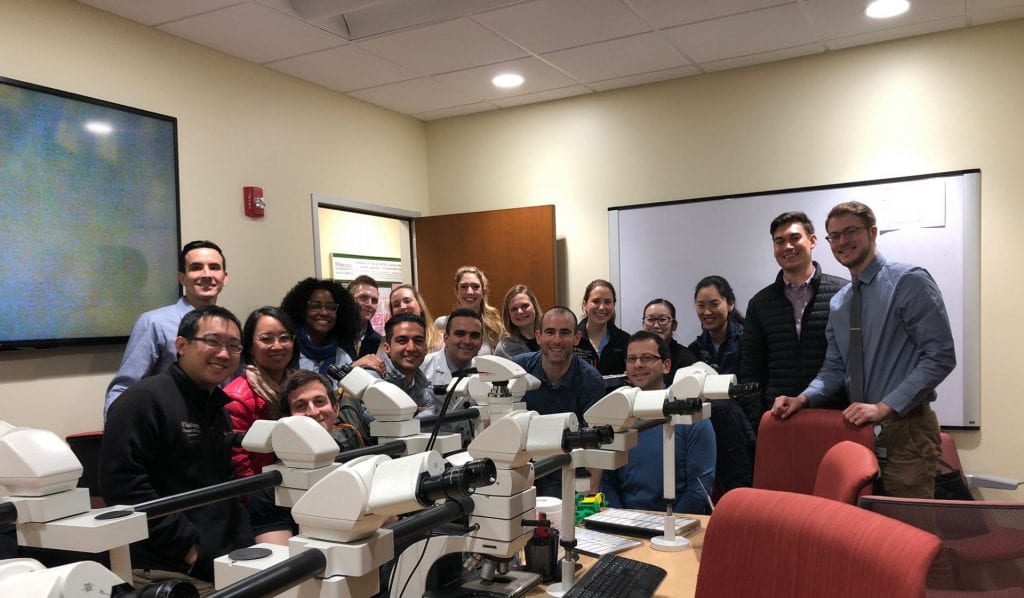Our clinical and didactic educational curriculum covers the three-year training period, allowing residents the opportunity to build upon foundational knowledge throughout their residency. Sessions are led by both co-residents and faculty, and cover sub-specialty and foundational topics.
Slide conference
Third-year residents lead these sessions weekly, which consist of “unknown” clinical images from the literature, personal, or attending collections. Each resident presents six slide conferences during final year of residency. During this interactive conference, each resident is expected to provide a possible diagnosis, building an exhaustive differential diagnosis for each image. This conference not only emphasizes morphology and pattern recognition, but also includes discussions of the disease entities presented. Attendance by a faculty mentor allows for additional contribution to the discussions.

Dermatopathology teaching
Dermatopathology sessions are held at the multi-headed microscope or on Zoom (as of 2020) and conducted as “unknowns” with rotating teaching by dermatopathology faculty and the dermatopathology fellow. There are a series of introductory sessions led by faculty for the first-year residents.

Grand Rounds
Grand Rounds is held every Thursday morning and includes patient viewing, discussions of treatment and diagnostics for each patient, as well as resident presentations (consult case presentations, cutting-edge dermatology topics, morbidity and mortality conference).
Journal Club
Journal Club is held roughly twice each month, and highlights one seminal article in our field and one newer ground-breaking article. All Journal Club sessions are led by residents on a rotating basis, with faculty mentorship and participation.
Dermatology core curriculum
These are foundational lectures that cover the range of neoplastic and non-neoplastic dermatology; all lectures are given by faculty members. This comprehensive curriculum is structured into topic-based units, with each unit ending with a final ‘capstone’ case-based session led by a senior resident.
Additional educational sessions
Melanoma disease management team conference
These multi-disciplinary conferences are held on the 2nd and 4th Thursdays of each month before Grand Rounds and include presentations of challenging melanoma and other high-risk cutaneous oncology cases by medical oncology, surgical oncology, and dermatology. Radiology and pathology images are often presented to aid in diagnostic and management discussions. Residents may occasionally be asked to present clinical information patients seen in our dermatology clinics.
Professional development series
These sessions focus on a variety of topics related to career development and include: panels on careers in dermatology (academic and private practice), CV workshop, contract basics, healthcare climate, tools for academic work, and finding meaning in your career.
First-year curriculum
To build a strong foundation of dermatology knowledge, first-year residents participate in weekly or bimonthly peer-led discussions covering morphology, common diagnoses, and treatment modalities. A topic-based reading guide is provided.